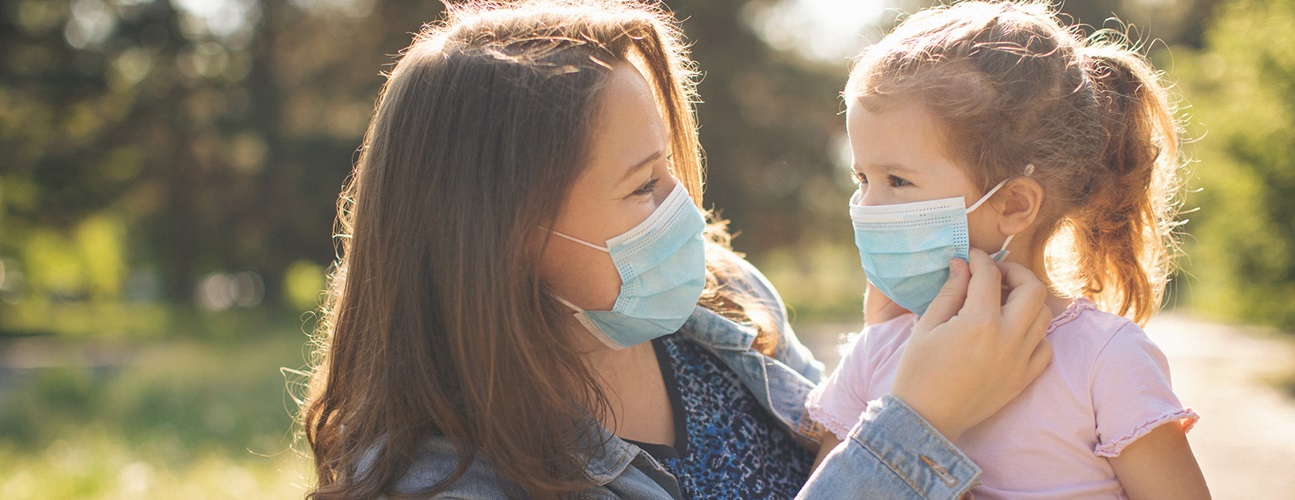


Although the coronavirus pandemic is not over, there is some good news: The COVID-19 vaccines are widely available, safe and very effective at preventing SARS-CoV-2 infection and the severe forms of COVID-19. Here are some recommended safety tips for your family from Johns Hopkins Children’s Center infectious diseases specialist Anna Sick-Samuels, M.D., M.P.H.
The Centers for Disease Control and Prevention (CDC) now recommends a COVID-19 vaccine for children age 5 and older, as well as for all adults. COVID-19 vaccination boosters are also recommended for those who are:
• age 18 or older and received the Janssen/Johnson & Johnson vaccine at least two months ago
• age 18 or older and received both required doses of the Moderna vaccine, with the second dose at least six months ago
• age 16 or older and received both required doses of the Pfizer-BioNtech vaccine, with the second dose at least six months ago Now that millions of people have been fully vaccinated, everyone can have confidence in the safety of getting vaccinated. Serious side effects from the COVID-19 vaccines are very rare, and the viral infection can cause many more serious and potentially long-term health problems than getting vaccinated. Most side effects from the vaccine are mild and get better on their own in one or two days. The vaccines can help prevent severe coronavirus disease, hospitalization and death, even from the SARS-CoV-2 delta variant and other variants currently circulating.
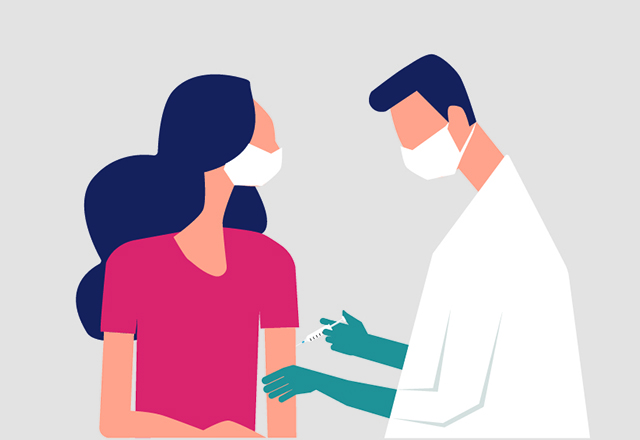
It takes about 14 days after vaccination to build up protective immunity (so getting a shot the day before a holiday gathering will not help prevent catching COVID during the gathering).
The coronavirus that causes COVID-19 spreads when someone with the virus coughs, sneezes, sings or talks when close to others. Droplets containing the virus can enter another person’s body through their eyes, nose, mouth or lungs. These viral droplets and particles spread among people more easily in indoor than outdoor areas, where air movement can blow them away. Rarely, people can get the coronavirus by touching a contaminated surface and then touching their face. If you are infected but don’t have any symptoms, you can still spread the virus to other people. COVID-19 vaccines not only help prevent people from getting sick but also reduce the chance of spreading the coronavirus to family members, friends and neighbors.
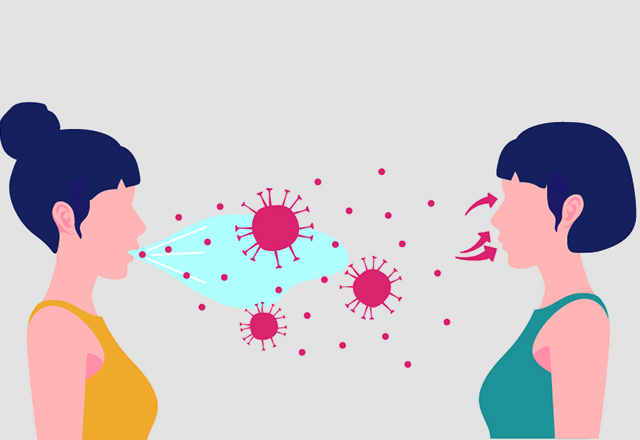
Outdoor gatherings, even without masks, are safer than indoor gatherings. Indoor gatherings with everyone wearing masks are less likely to lead to transmissions than indoor gatherings with people not wearing masks. Because of this, it is important to wear a mask and practice physical distancing in public places, especially indoor, to prevent viral spread. If you have symptoms of respiratory illness, stay home and do not gather with others, even if the symptoms are mild.

COVID-19 symptoms can include fever, cough, trouble breathing, fatigue, muscle aches, headache, new loss of taste or smell, sore throat and other symptoms. Compared to adults, children and teenagers usually experience relatively milder symptoms, but can develop an uncommon but serious lung infection requiring hospitalization or multisystem inflammatory syndrome in children (MIS-C), which can be a life-threatening complication. MIS-C occurs after the virus infection and symptoms can include persistent fever, rashes, abdominal pain, diarrhea, vomiting, headache and altered mental status.

Your family members probably have had lots of practice washing their hands thoroughly, physically distancing, wearing masks, sneezing into the bend of their elbows and keeping things clean. Make sure everyone in your family — especially those who are not yet fully vaccinated, such as young children — remembers to continue precautions such as mask wearing and physical distancing. These basic measures continue to be the first lines of defense to prevent acquiring or spreading the virus that causes COVID-19. The goal of prevention measures like mask wearing and getting eligible children vaccinated is to help keep children healthy, in school and participating in their activities. The very contagious delta variant is circulating, and mask wearing will help prevent outbreaks. This is one reason why the Centers for Disease Control and Prevention (CDC) and the American Academy of Pediatrics recommend masking for children in grades K-12, even for those who are fully vaccinated. Bonus: These practices also help protect you from common colds, flu and other contagious respiratory diseases that often show up in the autumn and winter months.
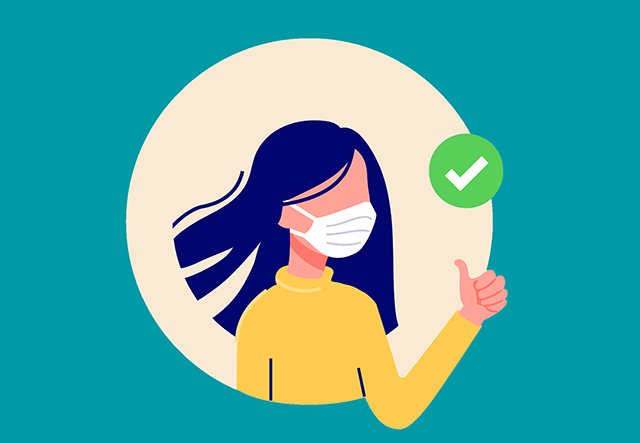
Even when most people in your community are fully vaccinated, some are still at risk and sometimes even fully vaccinated people can get infected. Children under age 5 cannot be vaccinated yet, and people having an organ transplant or receiving treatment for some forms of cancer may not get as much protection from the vaccines. Follow posted coronavirus precautions in public areas and businesses. Experts recommend having a fresh mask handy to help keep yourself and others safe if you enter an indoor environment such as a health care facility where vulnerable people might be present.
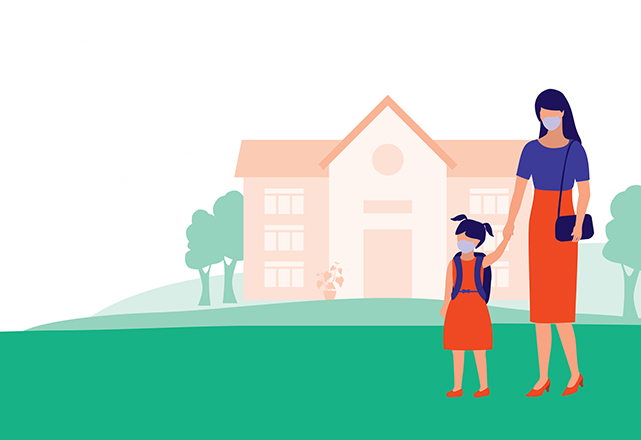
COVID-19 safety rules and precautions vary from school to school. Guidelines for children under age 5 might be different than those for kids who are eligible for COVID-19 vaccinations. Watch for changes to policies at your child’s school if the COVID-19 situation changes — for instance, if the number of new cases begins to rise in your area. The number of COVID-19 cases occurring from school contacts often follows the same pattern in the surrounding community. Do what’s right for you and your family, basing your decisions on frank discussion with your child’s doctor and school, and reliable sources for COVID-19 information, such as the CDC’s recommendations for school settings.

The COVID-19 pandemic has given us a new perspective on the importance of good health. Your family can build on that by cultivating good habits such as maintaining a healthy diet, not smoking or vaping, getting vaccinated for contagious diseases (including COVID-19 and the flu) and keeping up with regular doctor checkups and health screenings.

Exercise and other forms of self-care are essential for good health. Even if your schedule is becoming busier now, a walk, run or bike ride outdoors does wonders for the mind and spirit. A family dance party with your favorite tunes can help you share laughter and memories. Playing challenging games, researching topics at your local library, taking a class, or learning a new sport or skill such as cooking, home improvement or playing a musical instrument keeps your mind engaged as we wait for more of life to return to normal.
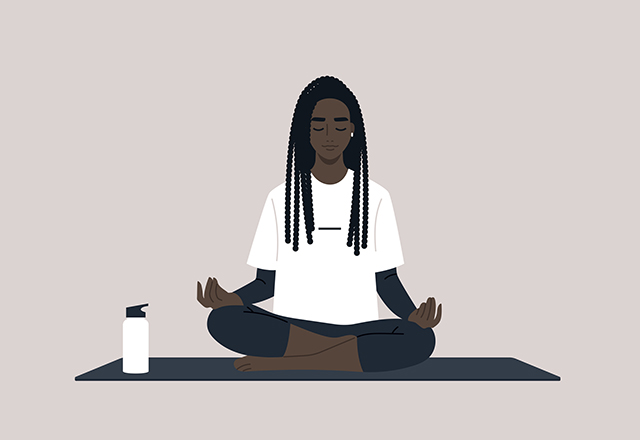
The coronavirus pandemic has been tough on everyone, separating us from loved ones, upending schedules, and affecting personal safety and financial security. Look for signs of anxiety and depression, especially in children and teens, who might not be able to voice their feelings as well as adults. If someone in your family shows persistent sadness, irritability, sleeplessness, lack of energy, nervousness, problematic drinking or substance use, encourage them to get professional help, which can restore hope and well-being.
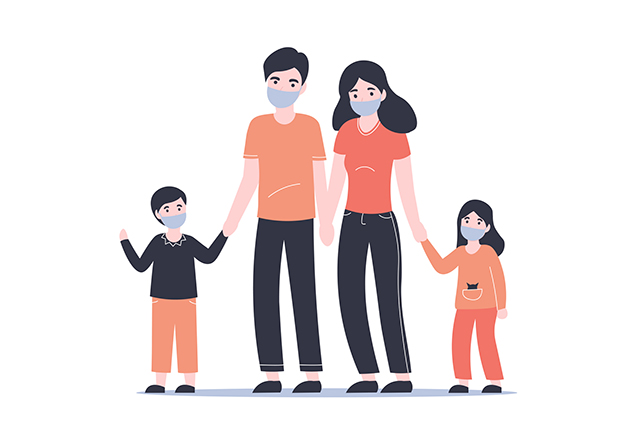
The COVID-19 pandemic continues to evolve. While vaccines are offering hope, coronavirus variants such as delta are a concern, especially for those who are not fully vaccinated. Further mutations of the coronavirus might complicate the picture. Staying up to date with fact-based, reliable medical information on the coronavirus, such as the CDC’s guidelines for community, work and school, can empower you, your family and your community as we look toward the future.

What you need to know from Johns Hopkins Medicine.